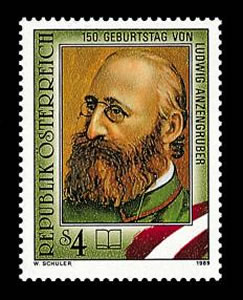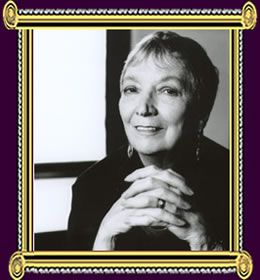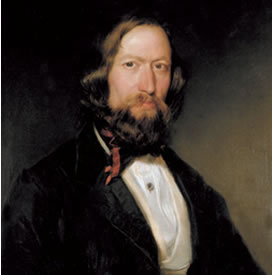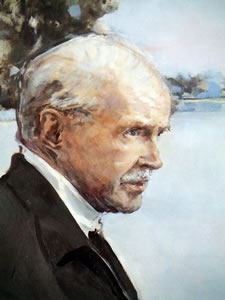De Belgische schrijver Jean-Philippe Toussaint werd op 29 november 1957 geboren in Brussel. Zie ook mijn blog van 29 november 2006 en ook mijn blog van 29 november 2007 en ook mijn blog van 29 november 2008.
Uit: The Bathroom (Vertaald door Nancy Amphoux en Paul De Angelis)
„1. When I began to spend my afternoons in the bathroom I had no intention of moving into it; no, I would pass some pleasant hours there, meditating in the bathtub, sometimes dressed, other times naked. Edmondsson, who liked to be there with me, said it made me calmer: occasionally I would even say something funny, we would laugh. I would wave my arms as I spoke, explaining that the most practical bathtubs were those with parallel sides, a sloping back, and a straight front, which relieves the user of the need for a footrest.
2. Edmondsson thought there was something desiccating in my refusal to leave the bathroom, but this didn’t stop her from making life easier for me, providing for the needs of the household by working part-time in an art gallery.
3. Around me were cupboards, towel racks, a bidet. The washbasin was white; a narrow shelf projected above it, and on the shelf lay toothbrushes and razors. The wall facing me, studded with lumps, showed cracks, and in places cavities pitted the lifeless paint. One crack seemed to be gaining ground. I spent hours staring at its extremities, vainly trying to surprise it in action. Sometimes I made other experiments. I would scrutinize the surface of my face in a pocket mirror and, at the same time, the movements of the hands on my watch. But my face let nothing show. Ever.
4. One morning I tore down the clothesline. I emptied all the cupboards and took everything off the shelves. After piling all the toilet articles into one large refuse bag, I began moving part of my library. When Edmondsson came home I greeted her book in hand, lying with my feet crossed up on the faucet.“

Jean-Philippe Toussaint (Brussel, 29 november 1957)
De Engelse dichter en schrijver Mario Petrucci werd geboren op 29 november 1958 in Londen. Zie ook mijn blog van 29 november 2008.
LATE SEPTEMBER
(after Bertolt Brecht, ‘Spring 1938’)
There’d been dew. Maybe light rain.
And a blot drew my eye to that plot of light
through my kitchen window. Closer. I saw
pincer legs measure out each wire. That
pause of the abdomen before it dipped
to spot-weld each link. I took a chair outside
to stand on. Craned. I wanted to live.
It let me brush a fingertip across the velvet
brown of its back, against the nap, and again
till it froze mid-air, eight legs outstretched,
still as a child roused from a trance of play.
There – the same creature I’d raise my slipper to,
hunt across carpet to end in a smudge.
I wouldn’t have it in my hand. In my hair.
Yet it – she – went to all that length to snare
mosquito and bluebottle, those who’d ruin
a soup, or blood. Hours. For once I took
the time. Saw the target complete, her radii
strung high between window and washing line.
I thought of the twist of cells that can work
such wonder. I thought of poets whose words
don’t reach. Spider just does. Reads angles –
but not this freak thunder, its blown-up tongues
of birds. Everywhere. Birds swooping for spiders.
I feared something might skim, unknowing,
through that hard-earned web. A swift perhaps,
impossibly late. I saw spider prey. Hung there
in her patch of unsafe sky.

Mario Petrucci (Londen, 29 november 1958)
De Italiaanse schrijver, schilder, arts en politicus Carlo Levi werd geboren op 29 november 1902 in Turijn. Zie ook mijn blog van 29 november 2008.
Uit: Fear of Freedom (Vertaald door Adolphe Gourevitch)
“Ab Jove principium —everything begins with Jupiter. And we too must begin there, at this non-existent point from which all things are born
. Our Jupiter, however, we need not seek in the skies, but where he is wont to stay, in places most dark and earthly, in the maternal dampness of the deep. He is more akin to the worm than to the eagle; but soon enough, he will find his own heraldic eagles, and extol them above every badge or emblem, for only thus will he avoid being devoured, once and for all, by the true eagles of the heavens.
Beyond metaphors, we cannot grasp anything human, unless we start from the feel of the sacred: the most ambiguous, deep-seated, double-edged of all feelings and senses, worm and eagle alike; a continuous dark denial of freedom and art, and—conversely—a continuous creation of art and freedom. And again, we cannot understand anything social, unless we start from the meanings of religion, this disrespectful heir of things sacred.
What is the process of every religion? To change the sacred into the sacrificial: to deprive it of its main feature—inexpressibility—by transforming it into deeds and words; to create the ritual out of the mythical; to substitute a sacramental bird for a shapeless turgidity, and marriage for desire; to turn sacred suicide into consecrated slaughter. Religion is relation and relegation. Relegation of a god into a web of formulas, conjurations, invocations, prayers, so that he may not, as is his way, elude us. Sacredness, the very appearance of terror, shapes itself into law, in order to escape its own self. Pure anarchy becomes pure tyranny. Man, as a free being, is thus bound by the selfsame bonds of the sacred, and relegated into a common reciprocal nexus before the deity. There is no rabble without a king, there are no masses without God. It may be false to claim that every society grows out of a religious tie; but it is certainly true that every monarchy is religious.”

Carlo Levi (29 november 1902 – 4 januari 1975)
De Cubaanse dichter en singer-songwriter Silvio Rodríguez Domínguez werd geboren in San Antonio de Los Baños op 29 november 1946. Zie ook mijn blog van 29 november 2008.
La Maza
Time,
Time,
Time, see what’s become of me
While I looked around for my possibilities.
I was so hard to please.
Look around,
Leaves are brown,
And the sky is a hazy shade of winter.
Hear the Salvation Army band.
Down by the riverside’s
Bound to be a better ride
Than what you’ve got planned.
Carry your cup in your hand.
And look around.
Leaves are brown.
And the sky is a hazy shade of winter.
Hang on to your hopes, my friend.
That’s an easy thing to say,
But if your hopes should pass away
Simply pretend that you can build them again.
Look around,
The grass is high,
The fields are ripe,
It’s the springtime of my life.
Seasons change with the scenery;
Weaving time in a tapestry.
Won’t you stop and remember me
At any convenient time?
Funny how my memory skips
Looking over manuscripts
Of unpublished rhyme.
Drinking my vodka and lime,
I look around,
Leaves are brown,
And the sky is a hazy shade of winter.

Silvio Rodríguez (San Antonio de Los Baños, 29 november 1946)
De Ierse schrijver C.S. Lewis werd geboren op 29 november 1898 in Belfast. Zie ook mijn blog van 29 november 2006 en ook mijn blog van 29 november 2008.
Uit: The Screwtape Letters
„MY DEAR WORMWOOD,
I note with grave displeasure that your patient has become a Christian. Do not indulge the hope that you will escape the usual penalties; indeed, in your better moments, I trust you would hardly even wish to do so. In the meantime we must make the best of the situation. There is no need to despair; hundreds of these adult converts have been reclaimed after a I brief sojourn in the Enemy’s camp and are now with us. All the habits of the patient, both mental and bodily, are still in our favour.
One of our great allies at present is the Church itself. Do not misunderstand me. I do riot mean the Church as we see her spread but through all time and space and rooted in eternity, terrible as an army with banners. That, I confess, is a spectacle which makes I our boldest tempters uneasy. But fortunately it is quite invisible to these humans. All your patient sees is the half-finished, sham Gothic erection on the new building estate. When he goes inside, he sees the local grocer with rather in oily expression on his face bustling up to offer him one shiny little book containing a liturgy which neither of them understands, and one shabby little book containing corrupt texts of a number of religious lyrics, mostly bad, and in very small print. When he gets to his pew and looks round him he sees just that selection of his neighbours whom he has hitherto avoided. You want to
lean pretty heavily on those neighbours. Make his mind flit to and fro between an expression like “the body of Christ” and the actual faces in the next pew. It matters very little, of course, what kind of people that next pew really contains. You may know one of them to be a great warrior on the Enemy’s side. No matter. Your patient, thanks to Our Father below, is a fool. Provided that any of those neighbours sing out of tune, or have boots that squeak, or double chins, or odd clothes, the patient will quite easily believe that their religion must therefore be somehow ridiculous. At his present stage, you see, he has an idea of “Christians” in his mind which he supposes to be spiritual but which, in fact, is largely pictorial. His mind is full of togas and sandals and armour and bare legs and the mere fact that the other people in church wear modern clothes is a real—though of course an unconscious—difficulty to him. Never let it come to the surface; never let him ask what he expected them to look like. Keep everything hazy in his mind now, and you will have all eternity wherein to amuse yourself by producing in him the peculiar kind of clarity which Hell affords.“

C.S. Lewis (29 november 1898 – 22 november 1963)
De Amerikaanse schrijfster Louisa May Alcott werd geboren op 29 november 1832 in Germantown, Pennylvania. Zie ook mijn blog van 29 november 2006 en ook mijn blog van 29 november 2008.
Uit: Little women (Onder moedervleugels, vertaling door Almine, Amsterdam 1876)
“Ik geloof niet, dat het beetje, dat wij te besteden hebben, veel zou kunnen uitrichten. We hebben elk een rijksdaalder, en het leger zou er niet veel bij winnen, of wij dien nu al gaven. Ik geef toe, dat ik niets van Moeder of van jou moet verwachten, maar ik zou zoo dol graag “Udine en Sintram” voor mezelf willen koopen, ik heb er al zoo lang naar verlangd,” zei Jo, die een boekworm was.
“Ik was van plan mijn geld te besteden aan nieuwe muziek,” zei Bets met een zuchtje, dat echter door niemand gehoord werd.
“Ik zal een mooi doosje met Faber’s teekenpotlood koopen; die heb ik bepaald noodig,” zei Amy vast besloten.
“Moeder heeft niets gezegd van ons eigen geld, en ze zal toch niet verlangen, dat we alles opgeven. Laten we ieder iets koopen wat we graag willen hebben en wat pret maken; we zwegen heusch hard genoeg om het te verdienen,” riep Jo, terwijl ze de hakken van haar laarzen op jongensmanier bekeek.
“Ik tenminste wel,–die elken dag die gruwelijke kinderen moet leeren, terwijl ik er naar snak prettig thuis te zijn,” begon Meta op klagenden toon.
“Jij hebt het niet half zoo hard als ik,” vond Jo. “Hoe zou jij het vinden, uren lang opgesloten te zijn met een zenuwachtige, zeurige, oude dame, die je al maar heen en weer laat loopen, nooit tevreden
is, en je plaagt, tot je in staat zou zijn het raam uit te springen, of haar een oorveeg te geven?”
“Het is slecht om ontevreden te zijn,–maar ik geloof, dat borden wasschen en alles netjes houden het naarste werk van de wereld is. Het bederft mijn humeur, en mijn handen worden zoo stijf; ik kan haast
niet studeeren.” En Bets keek naar haar ruwe handen met een zucht, die ditmaal heel goed te hooren was.
“En ik geloof niet, dat een van allen het zoo erg heeft als ik,” riep Amy, “want jullie hoeven niet naar school te gaan met nuffen, die iemand plagen, als hij zijn lessen niet kent, of uitlachen om zijn kleeren, en met “étain” op iemands vader neerzien, als hij niet rijk is, en iemand beleedigen, als hij geen mooien neus heeft.”

Louisa May Alcott (29 november 1832 – 6 maart 1888)
Boekomslag
Zie voor nog meer schrijvers van de 29e november ook mijn vorige blog van vandaag.







